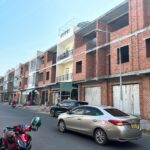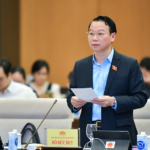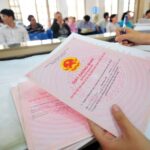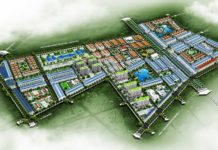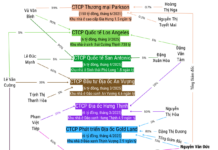On the morning of November 13, the National Assembly discussed the draft resolution on piloting the implementation of commercial housing projects through agreements on the receipt of land use rights or the current possession of such rights.
Regarding the resolution pilot on expanding land for commercial housing projects, Deputy Hoang Van Cuong from Hanoi delegation shared that previously, when the National Assembly brought up this topic for discussion, he opposed the idea of allowing enterprises to purchase agricultural land and then change its purpose for commercial housing development.
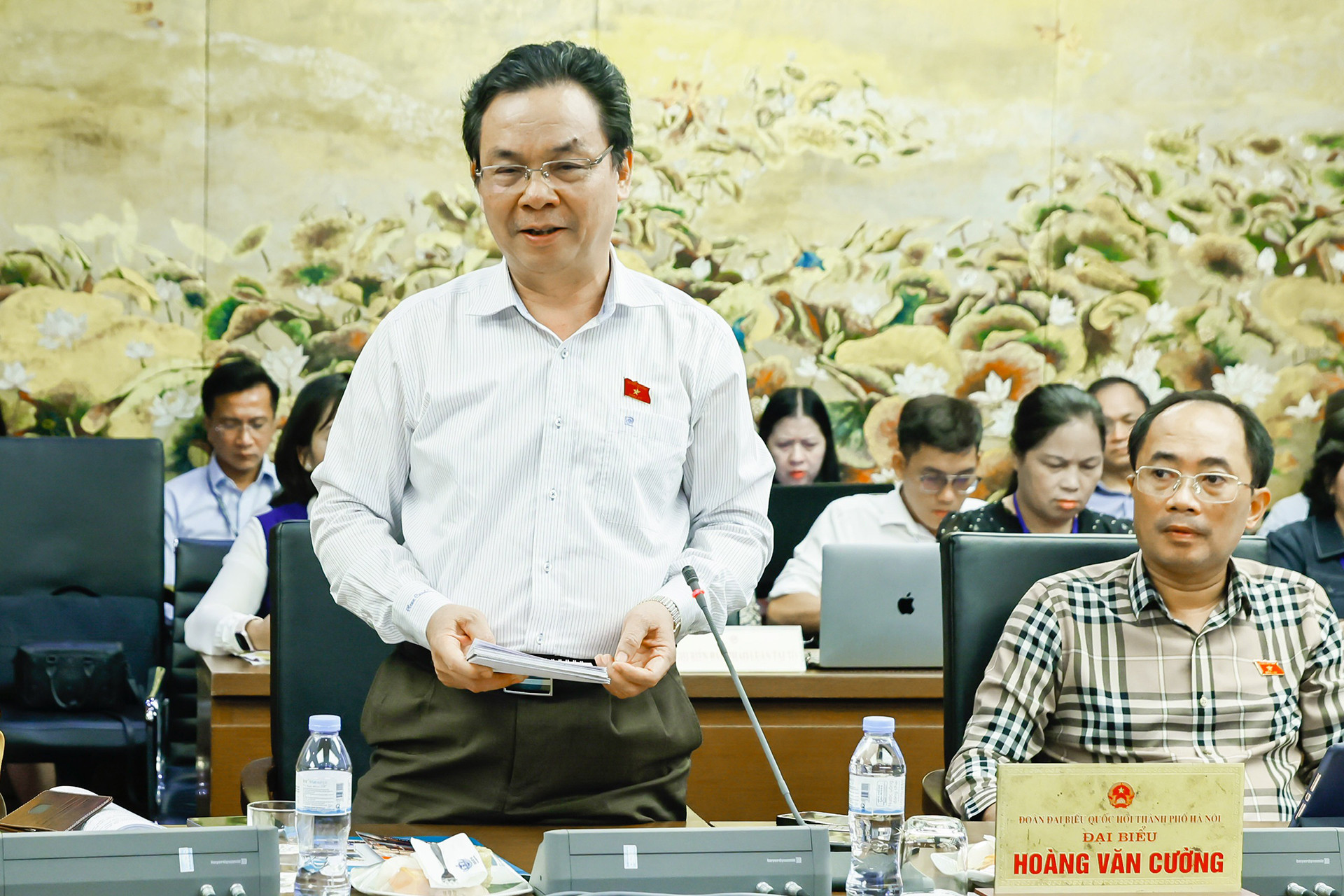 Deputy Hoang Van Cuong (Hanoi delegation). Photo: Nhu Y |
“Why? Because, previously, land prices were very low and did not reflect market values. If enterprises were allowed to change the purpose of land use, they could buy cheap agricultural land and then convert it, gaining significant profits. I opposed this as it would create inequality between enterprises and citizens,” said Cuong.
However, according to Deputy Cuong, the 2024 Land Law has addressed this issue by ensuring that land prices are closely aligned with market values. As a result, when there is a change in land use purpose, the market-based price will be applied, eliminating any potential windfall profits. After the enactment of the new Land Law, he no longer opposes this matter.
Regarding the pilot expansion of land for commercial housing projects, Deputy Nguyen Phuong Thuy from the Hanoi delegation pointed out the reality of land fever and skyrocketing prices. “By allowing real estate businesses to acquire land use rights through agreements to change the land use purpose for commercial housing, will we create another wave of land fever?” asked Deputy Thuy.
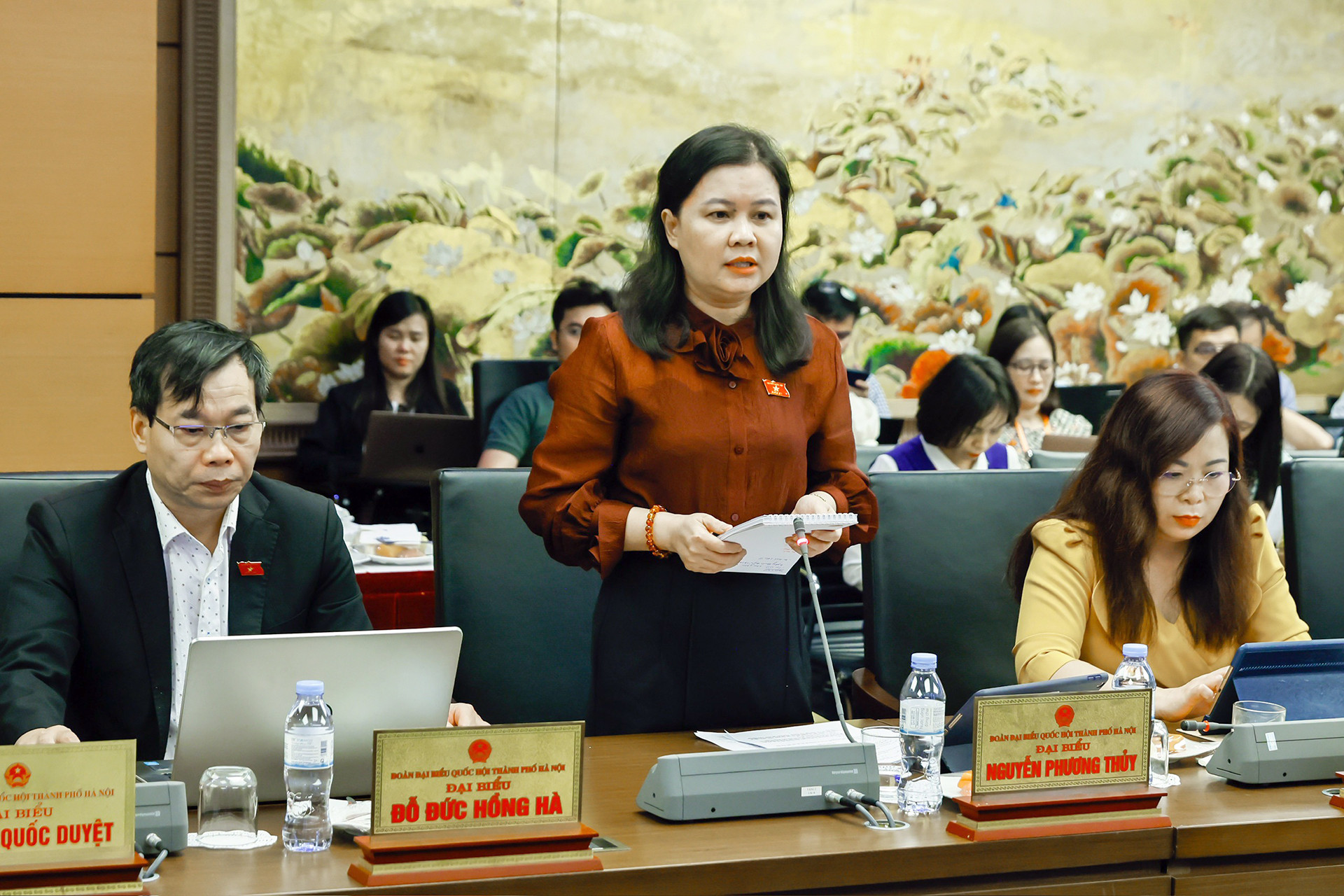 Deputy Nguyen Phuong Thuy (Hanoi delegation) |
According to Thuy, if individuals and enterprises focus solely on buying land and waiting for planning adjustments, leading to land price hikes, it will create challenges for businesses seeking land for production and business operations. “This will create a new price benchmark for all types of land, not just residential land. This is a consequence that needs to be carefully considered,” she said.
Therefore, Deputy Thuy suggested that the pilot should be conducted in a limited number of localities to assess its impact on the real estate market. The specific provisions of the draft resolution also need to be carefully considered to ensure transparency, clarity, and convenience in implementation.
Speaking at the discussion, Minister of Natural Resources and Environment Do Duc Duy emphasized the necessity of issuing the draft resolution. According to him, the pilot resolution aims to address these difficulties and untangle the knot in the approach to acquiring land for implementing commercial housing projects.
Regarding concerns about potential overlap with the Land Law, which stipulates cases where the transfer of rights is permitted, Mr. Duy reassured that in the draft resolution, the Government has added Clause 5, Article 1, which excludes projects that the 2024 Land Law already allows for the transfer of land use rights. In other words, “if a case is already regulated by the 2024 Land Law, it is excluded from the scope of this resolution,” he explained.
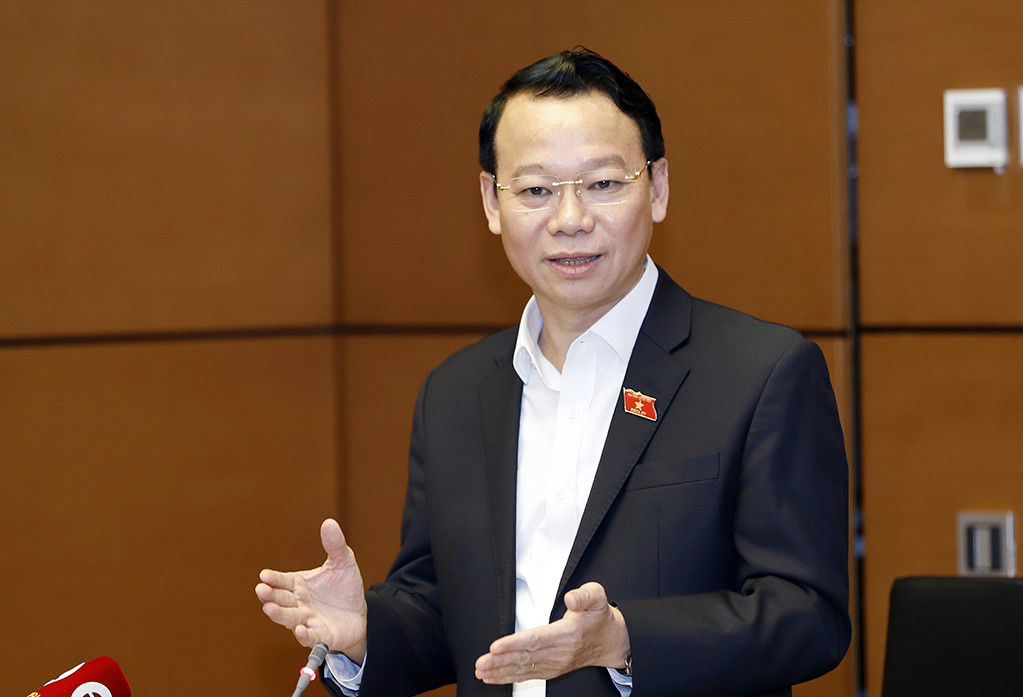
Minister of Natural Resources and Environment Do Duc Duy |
Regarding the criteria for implementing the pilot, the draft resolution stipulates that the area of residential land increased during the planning period (compared to the current land use status) should not exceed 30%. Explaining the reason for this regulation, Mr. Duy said that Resolution 18 of the Central Committee mentions that land allocation and land lease should primarily be done through auctions of land use rights and project auctions involving land use.
Thus, the Central Resolution stipulates that two main methods will be used: auctions and project auctions. Therefore, the third method, which is the acquisition of land use rights, or the fourth method, which is the change of land use purpose for land currently in use, should not be the primary approach. Hence, the Government proposes a maximum limit of 30%. The remaining 70% will be implemented through auctions or auctions in accordance with Resolution 18 of the Central Committee.
Quang Phong – Thu Hang
The Experimental Expansion of Commercial Housing Construction on Agricultural and Non-Agricultural Land: Concerns Over Soaring Housing Prices
Small businesses are often faced with an uphill battle when it comes to entering the market, as they lack the financial muscle to purchase land or bid on areas with development potential. Large investors with a land bank advantage for commercial projects in high-demand areas will continue to control sale prices to optimize their profits.
“Will Southern Land Prices Soar Following the Crackdown on Land Subdivision?”
In a context of scarce new supply, primary products are bound to increase in price, and so the secondary market for pre-owned goods will also experience a price hike to keep up with this rising trend.
The Power of Words: Crafting a Compelling Title for “Pilot Project on Commercial Housing from Land Use Rights”
On the morning of November 3rd, the National Assembly’s Standing Committee discussed and gave opinions on the draft resolution on piloting the implementation of commercial housing projects through agreements on the receipt of land use rights or the transfer of land use rights.
The Red Book Blues: Unraveling the Mystery of Vietnam’s Land Ownership Exclusions
Article 151 of the Land Law 2024 outlines the circumstances under which individuals are ineligible to receive the Certificate of Land Use Rights and Ownership of Assets Attached to the Land (referred to as the Certificate). These circumstances encompass instances where the land user is ineligible and where the assets attached to the land are ineligible for certification.


